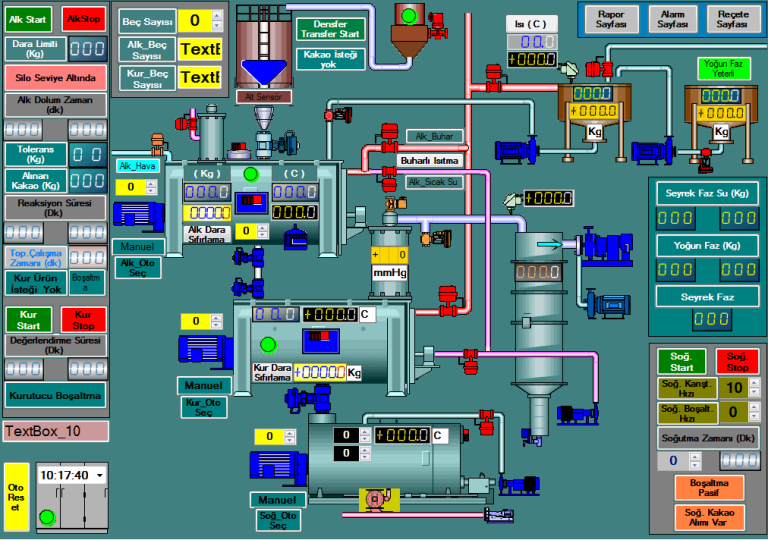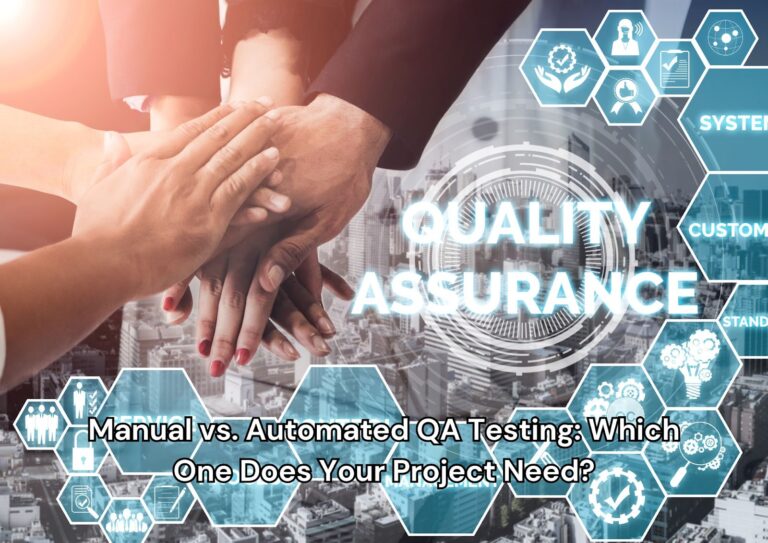Compliance Made Simple: How Halal Certification Streamlines Your Quality Control Systems
Navigating compliance in today’s food industry means juggling multiple standards, endless documentation, and constant regulatory updates. For many food manufacturers and processors, adding another certification to the mix sounds like more complexity. But here’s what most businesses don’t realize: Halal certification doesn’t just open doors to global markets—it actually strengthens and simplifies your existing quality control systems. Rather than creating additional burden, a well-implemented Halal certification process through Halal Watch World can enhance your operational efficiency, reduce redundancies, and build a culture of excellence that benefits every aspect of your business.
The Overlap Between Halal & Quality Control
At first glance, Halal certification and quality control might seem like separate domains—one religious, one operational. In practice, they share fundamental principles that make them natural partners in food safety and business excellence.
Both frameworks prioritize hygiene, traceability, and contamination prevention. Halal standards require meticulous ingredient verification, clean processing environments, and thorough documentation—the same elements that form the backbone of HACCP (Hazard Analysis and Critical Control Points), ISO 22000, and Good Manufacturing Practices (GMP). When your facility operates under Halal certification, you’re reinforcing habits and protocols that regulators, retailers, and consumers already expect.
This overlap creates synergy rather than redundancy. Quality managers often find that pursuing Halal certification helps identify gaps in existing systems that might have been overlooked. Ingredient sourcing becomes more transparent, cross-contamination risks get addressed more systematically, and supplier relationships become more clearly documented. Regulatory bodies recognize this alignment—facilities with Halal certification often experience smoother inspections because the rigorous standards demonstrate a commitment to quality that extends beyond minimum requirements. For consumers, especially in international markets, Halal certification serves as a trusted signal that a company takes food safety seriously.
How Halal Certification Simplifies Compliance
The structured nature of Halal certification naturally enhances your compliance infrastructure. Rather than adding chaos, it brings clarity to complex operations through systematic approaches that benefit your entire quality control framework.
Structured audits conducted during Halal certification force comprehensive reviews of your processes. These audits identify potential weak points before they become problems, creating opportunities to strengthen systems proactively. The documentation requirements—while thorough—establish paper trails that satisfy multiple compliance needs simultaneously. When export authorities or retail partners request verification of your processes, the records developed for Halal certification often fulfill those requirements as well.
Ingredient verification under Halal standards eliminates ambiguity in your supply chain. Every component must be traceable, documented, and verified as Halal-compliant. This rigorous approach to ingredient management reduces contamination risks across the board, not just for Halal-specific concerns. You’ll know exactly what’s entering your facility, from which suppliers, and with what certifications—information that’s invaluable during recalls, quality investigations, or customer inquiries.
The traceability improvements extend beyond ingredients to every stage of production. Halal certification requires clear separation or thorough cleaning protocols to prevent cross-contact with non-Halal materials. Implementing these controls often reveals opportunities to improve workflow efficiency, reduce product loss, and minimize the risk of allergen cross-contamination or other quality issues.
For businesses eyeing international markets, Halal certification compliance aligns with trade requirements in Muslim-majority countries. Rather than navigating separate certification processes for each market, Halal certification from a recognized provider like Halal Watch World satisfies multiple market entry requirements with a single credential, streamlining your export compliance dramatically.
Benefits for Quality Control Teams
Quality assurance managers quickly discover that Halal certification makes their jobs easier in surprising ways. The integration of Halal standards into existing quality control systems creates efficiencies that pay dividends long after certification is achieved.
Audit consolidation becomes a major advantage. Instead of treating Halal as a separate checklist, it integrates into your regular quality audits. Many aspects overlap with food safety inspections, meaning you’re covering multiple compliance requirements during a single review. This reduces the time your team spends preparing for and managing separate audit processes, freeing them to focus on continuous improvement rather than repetitive documentation.
The supplier approval process becomes more streamlined and defensible. Halal certification requires pre-approved supplier lists with verified credentials. This structured approach to supplier management reduces the risk of non-compliant ingredients entering your facility and creates a framework that satisfies procurement audits, customer inquiries, and regulatory requirements simultaneously. When a new ingredient needs approval, the Halal verification process ensures due diligence that protects your entire operation.
Staff training associated with Halal certification raises awareness across your workforce. Employees become more conscious of contamination risks, ingredient handling, and documentation importance. This heightened awareness doesn’t stay confined to Halal requirements—it elevates the overall quality culture in your facility. Workers who understand why proper procedures matter are more likely to follow protocols consistently, reducing errors and quality issues.
Perhaps most importantly, Halal certification builds consumer trust that translates into fewer complaints, disputes, and potential recalls. When customers—whether retailers, food service operators, or end consumers—see legitimate Halal certification, they have confidence in your product quality. This trust reduces the burden on your quality team to field concerns and investigate claims, allowing them to focus on proactive quality improvement rather than reactive problem-solving.
Real-World Applications
The practical benefits of Halal certification integration appear across diverse food industry segments. Consider a mid-sized meat processing plant that pursued Halal certification to access Middle Eastern markets. During the certification process, auditors identified inconsistencies in their equipment cleaning logs that hadn’t been caught in routine inspections. Addressing these gaps not only secured Halal certification but also improved their overall sanitation protocols, reducing bacterial counts and extending product shelf life across all product lines.
A packaged food manufacturer producing snacks and baked goods found that Halal ingredient verification caught a supplier using processing aids that contained non-compliant materials. This discovery prevented a potential allergen issue that could have affected non-Halal products as well. The enhanced supplier documentation required for Halal certification now serves as their standard for all ingredient approvals, significantly strengthening their quality control framework.
Restaurant chains expanding internationally have leveraged Halal Watch World certification to streamline their quality systems across multiple locations. The standardized processes required for certification created consistency in food handling, storage, and preparation that improved operational efficiency beyond Halal-specific requirements. When health inspectors visit, the documented procedures and training records developed for Halal certification demonstrate a level of systematization that results in higher inspection scores.
Halal Watch World works with businesses of all sizes to integrate Halal certification seamlessly into existing quality control systems. Rather than imposing one-size-fits-all requirements, they help companies identify synergies between Halal standards and their current operations, making the transition smooth and the ongoing maintenance efficient.
Why Halal Watch World?
Choosing the right certification partner makes all the difference in how effectively Halal standards integrate with your quality control systems. Halal Watch World brings US-based expertise with global market recognition, understanding both the technical requirements of Halal compliance and the practical realities of food manufacturing operations.
The certification process is transparent and methodical, with clear milestones and expectations at every stage. Rather than overwhelming you with demands, Halal Watch World works as a partner to help you build systems that serve multiple compliance needs simultaneously. Their auditors understand existing food safety frameworks like HACCP and GMP, so they can help you leverage work you’ve already done rather than starting from scratch.
Support doesn’t end with certification. Halal Watch World provides ongoing guidance as regulations evolve, new products are developed, or facility changes occur. This long-term partnership approach means your quality control systems continue to benefit from Halal integration year after year, adapting to new challenges while maintaining the efficiency gains you’ve achieved.
Whether you’re a startup entering the market or an established manufacturer expanding into Halal products, Halal Watch World tailors their approach to your operational scale and quality management maturity, ensuring certification enhances rather than burdens your compliance infrastructure.
Conclusion
Halal certification represents far more than access to Muslim consumers—it’s an opportunity to strengthen your quality control systems, streamline compliance processes, and build operational excellence that benefits your entire business. The rigorous standards, systematic documentation, and heightened awareness that come with Halal certification create efficiencies that reduce costs, prevent issues, and open global opportunities.
With Halal Watch World as your certification partner, you gain not just a credential but a framework for continuous quality improvement that simplifies compliance and positions your business for sustainable growth.
Contact Halal Watch World today to integrate Halal certification into your quality control systems and discover how compliance can be simpler, more efficient, and more profitable.





